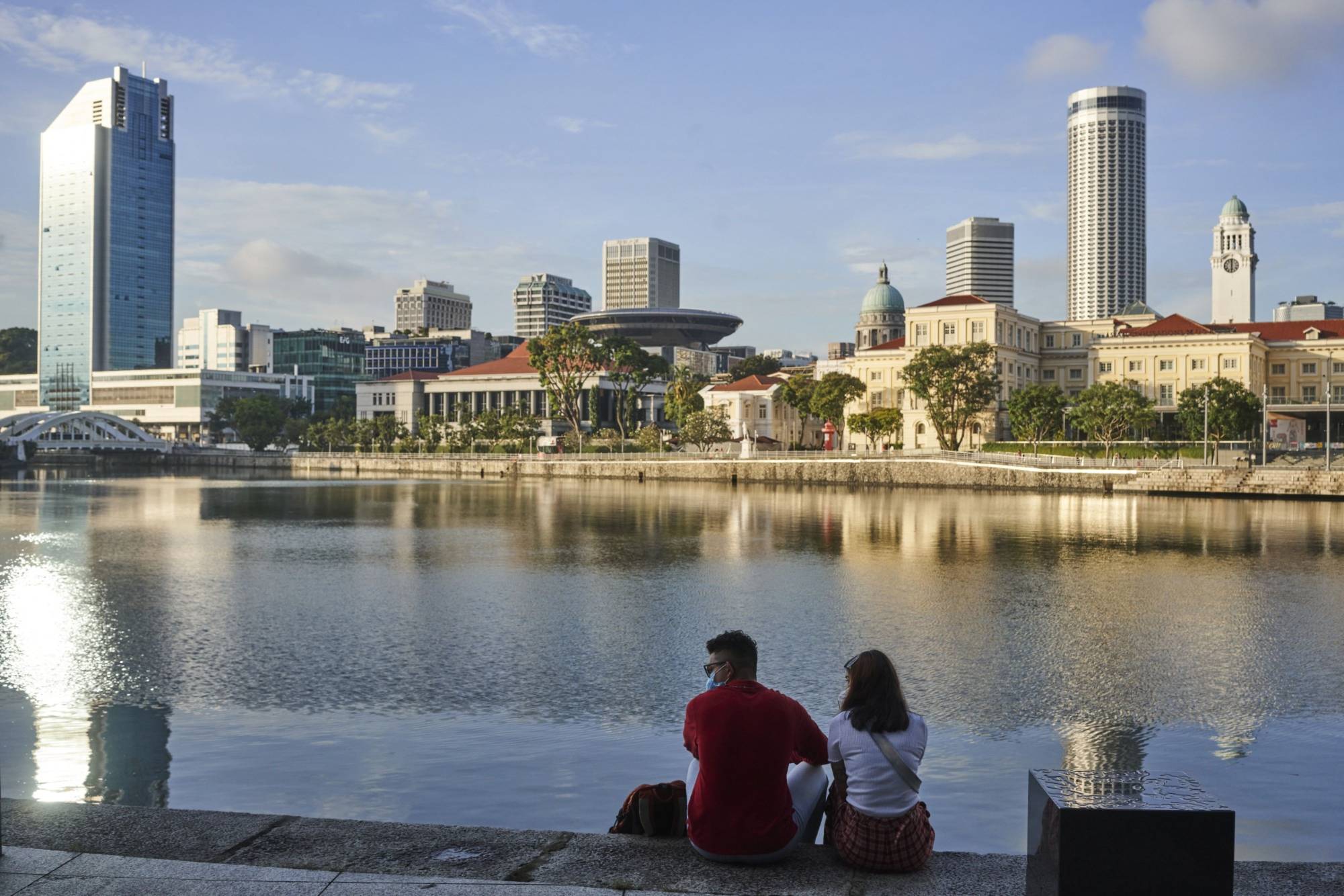Something big is missing from Singapore's picturesque and impeccably maintained highway linking downtown with Changi Airport: traffic.
The collapse in international travel has hit the city-state especially hard. Borders are shut to tourists and much of Singapore Airlines Ltd.’s proud fleet is mothballed. The idea of "flights to nowhere” had even been floated — effectively three-hour sight-seeing trips that would be bundled with staycations, shopping vouchers and limousine services. Now that has been scrapped for a plan to serve lunch aboard a grounded jumbo jet, a tour of the carrier’s training facilities and home delivery of first- and business class meals. The ability to get in and out of a nation that takes about 30 minutes to traverse has been a big draw for the more than one million expatriates who live here. Non-Singaporeans make up more than half of senior management roles in financial services. The idea of being stuck flying in circles has many rethinking the informal bargain they’ve struck with the city they call home. A big part of that was the opportunity to work in a dynamic region and experience diverse cultures and nations for a few years. In return, Singapore got talent, industrialization and unique ties to global networks, vital for a country without a hinterland or natural resources.
Singapore’s modus operandi has been to make itself a base camp for global capitalism and the people who make it tick. Lee Kuan Yew, the country’s first leader, laid out the welcome mat for multinational corporations: first for textiles, ship maintenance and petrochemicals, then for electronics, tourism and finance. Changi Airport, top-notch public transport, a commitment to education, and political stability made the city an appealing place to live. Relatively low tax rates only sweetened the deal (except for Americans, who need to pay income tax no matter where they live). Now Lee’s vision is running into the wall of COVID-19. Singapore’s economy shrank a record 42.9 percent on an annualized basis in the second quarter from the previous three months, the deepest economic contraction since independence in 1965. While data point to a bounce before year-end, the government projects gross domestic product to decline as much as 7 percent in 2020. This has sharply refocused public discourse. Opportunities for locals are the priority.



















With your current subscription plan you can comment on stories. However, before writing your first comment, please create a display name in the Profile section of your subscriber account page.